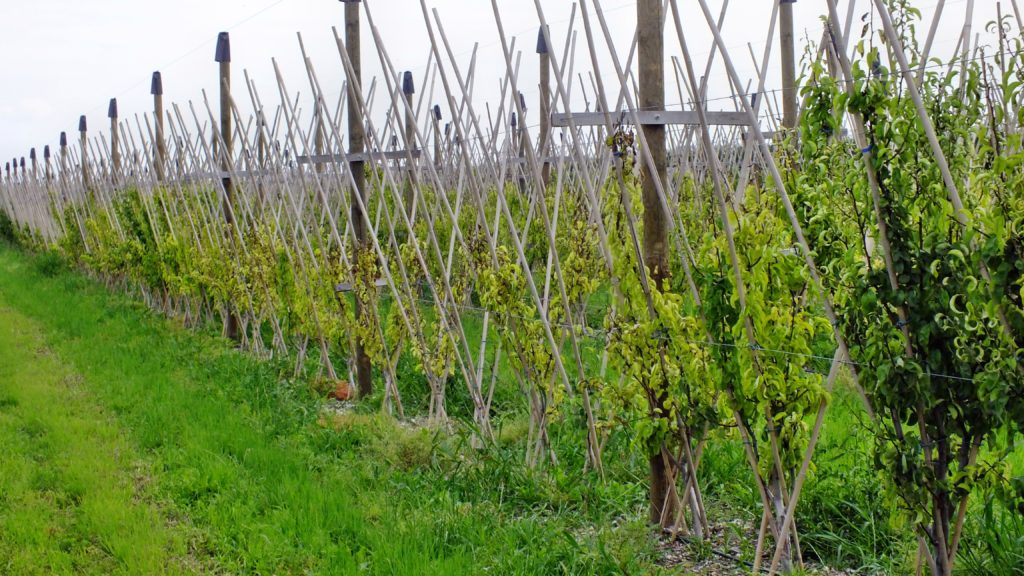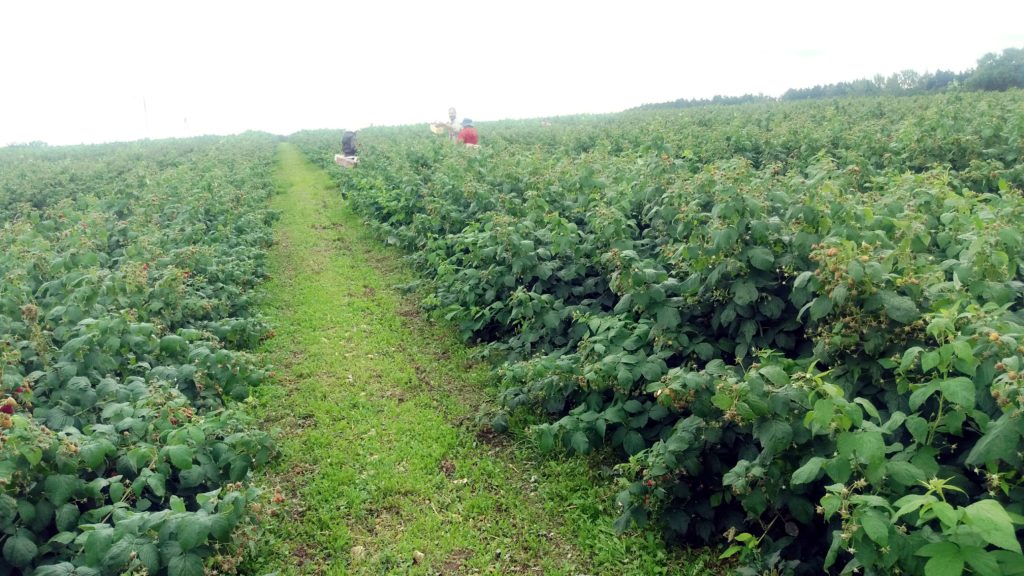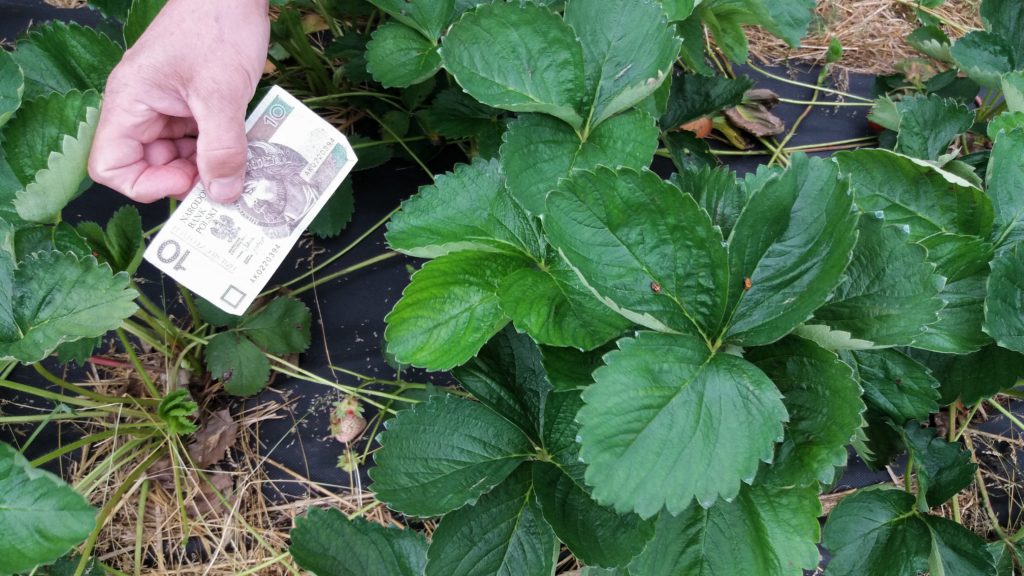Pro-ecological methods of improving the quality of the soil environment, boosting the yield and quality of crops in horticultural production!
The problems crop producers face in terms of adapting to the requirements of modern cultivation technologies (integrated, ecological) largely stem from the lack of availability of biological agents and effective methods of increasing and improving the quality of plant production.
Environmentally safe and cost-effective natural ways for producers to support plant growth, alternative to synthetic fertilizers and pesticides, are being explored for many reasons:
- progressive soil degradation (acidification, industrial and agricultural pollution, depletion of organic matter/humus, disappearance of microorganisms and others)
- climate change and related long-term soil water shortages, risk of wind erosion
- threats to ecosystems linked to the loss of biodiversity of organisms, starting from soil microbes
Low quality of food grown conventionally, using high doses of synthetic fertilizers (especially nitrogen and phosphorus-based) and chemical crop protection agents (synthetic pesticides), with insufficient content of ultra- and microelements, directly leads to an increase in the occurrence of civilization diseases among its consumers (chronic non-infectious conditions such as diabetes, cancer, allergies and many others).
Mykoflor® Laboratory – strategy and natural solutions for plant cultivation – in service to producers.
The company’s activities are centred on the use of natural connections of soil microorganisms with a plant through its root system. These links are tapped in various areas of plant production. The main focus is on symbiotic microorganisms, especially mycorrhizal fungi. This group also includes the associated nematode and insect predatory fungi; they are extremely important as their presence in the best habitats proves their high efficiency in maintaining plants in good condition.
Associative microorganisms, especially soil bacteria, are another group of interest, which, albeit in a looser connection with a plant’s root system, can also improve its growth and health. This is linked to the stimulation of root system development by means of bacterial metabolites in the scope of hormonal regulation, metabolites limiting the activity of pathogenic microorganisms in the root zone of the plant or metabolites increasing water availability, directly (mucous polysaccharides, mucopolysaccharides) and indirectly by improving the aggregation of mineral soil particles, the so-called lumps (glomalins). Some bacterial isolates obtained from the root system and the roots of the plant often demonstrate the ability to support the establishment and development of symbiosis of selected mycorrhizal fungi with plant roots (helpers), alongside binding atmospheric nitrogen. For this reason, we are developing both multi-component vaccines based on selected species of mycorrhizal fungi and mixed ones comprising both these fungi and associative bacteria benefiting the plant through interactions with its root system. From our twenty years of experience it is clear that multi-component vaccines are the best, since they allow the plant to decide which partner to establish symbiosis with. The Mykoflor® Laboratory deliberately does not emphasize the word “innovation” in its work because these are natural solutions which have been “invented” over periods often lasting hundreds of millions of years by organisms which, while living side by side in the same environment, have evolutionarily adapted their mutual requirements for growth and survival in changing, often unfavourable conditions of the soil environment; we are only applying these solutions.
The commercialization of the mentioned relationships between microorganisms and the plant has resulted in vaccines containing hyphae and spores of mycorrhizal fungi and selected live bacteria and endospores:
- endomycorrhizal inoculants are based on propagated fungi belonging to the Glomus and Gigaspora genus designed for herbaceous plants
- ectomycorrhizal inoculants, symbiotic fungi of forest trees, i.e. Basidiomycotes of various species and Ascomycetes as the Tuber genus (truffle); for woody plants
- ericoid inoculants (for blueberries and other ericaceous plants): Oidiodendron sp., Meliniomyces sp., Hymenoscyphus sp. and other
The above information should be of particular interest to organic food producers, as the introduction of mycorrhizal fungi into the production technology gives a long-term guarantee of much higher yields with a clear improvement in the taste and dietary quality of the produce. An additional advantage in some crops is the possibility of collecting fruiting bodies of truffles, as these fungi are very effective in terms of mycorrhiza, which is why we will be incorporating them into some vaccines as of 2020.
Rudy 28.11.2019
Andrzej Księżniak, Ph.D. (Institute of Soil Science and Plant Cultivation)
Eng. gardening Włodzimierz Szałański (MYKOFLOR)
 Pear trees 2014 y. – (Article – click)
Pear trees 2014 y. – (Article – click)
 Pear trees 2017 y. – (Article – click)
Pear trees 2017 y. – (Article – click)
 Raspberries 2017 y. – (Article – click)
Raspberries 2017 y. – (Article – click)
 Raspberries 2019 r. – (Article – click)
Raspberries 2019 r. – (Article – click)
 Strawberries mycorrhized in the first year after planting. (Wojciechów)
Strawberries mycorrhized in the first year after planting. (Wojciechów)
 Strawberries mycorrhized in the first year after planting. (Wojciechów)
Strawberries mycorrhized in the first year after planting. (Wojciechów)
projekt i realizacja
